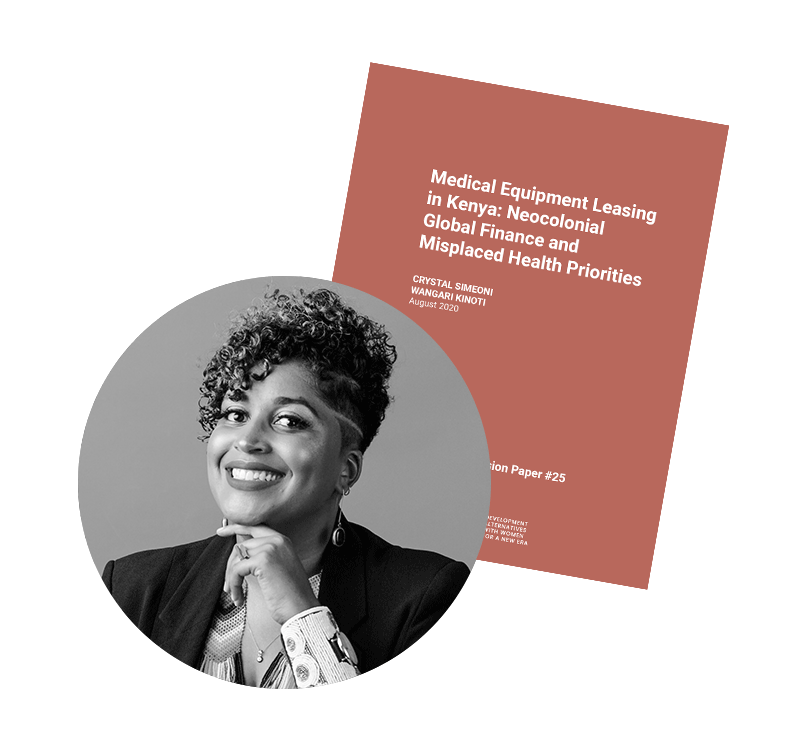Access to quality, universal gender-responsive and affirming healthcare remains a fundamental challenge for Africa and its citizens. For women in particular, it is not only a question of our own health. Failing healthcare systems mean more hours caring for ill children and other family members, and less time available for other activities and pursuits, be they decent paid work, education, political participation or leisure. Women’s unpaid labour subsidises collapsed public health systems. Seventy per cent of the health and social care work force are women and one in five women are employed in the care sector. National and local healthcare delivery are therefore not only a matter of health outcomes – but of time poverty, paid and unpaid labour, livelihoods and the full body of human rights.
Beats of Time
It’s 2021 in Nairobi, and Khadija is diligently preparing to give birth to her first child. It will all happen in the same hospital where her mother and grandmother delivered their babies. Kenya’s public health system has transformed considerably since 1965, when Atenio, Kadhija’s grandmother, gave birth to her mother. Back then, services were modest, but accessible. Now, there are modern hospitals filled with state-of-the-art technology which is barely used.
Now they say only the private health care system works, so they privatize more and more every day. But they can’t afford the fees, it’s so expensive…
Many say that the public-private partnerships brought “progress” to the country. But how can there be progress when a large part of the population still has no access to electricity or clean water?
The Podcast
Join Crystal Simeoni & Wangari Kinoti, Kenyan feminist authors as they discuss the nefarious influence of corporate power in their country’s public health system.
They are interviewed by DAWN’s feminist economist Corina Rodríguez Enríquez and project associate, Sue Godt, in this special episode about public-private partnerships in Africa.
The specialists delve into the case study “Medical Equipment Leasing in Kenya: Neocolonial Global Finance & Misplaced Health Priorities”. The conversation sheds light on what amounts to a neocolonial approach to development that has resulted in a dangerous lack of resources to address the most basic healthcare needs of the Kenyan population.
Who decided that they needed high-tech equipment over basic healthcare and medical facilities?
The episode offers paths to reimagining a truly public Africa rising, where African states can define and chart their policy agenda based on public well-being rather than corporate greed.
Connect The Dots
In writing this paper we are seeking to contribute to ongoing feminist analyses not only of public- private partnerships (PPPs), but of broader macroeconomic policy and how it impacts women and their communities. We are particularly committed to playing our part in interrogating and challenging the persistence of neoliberal policies imposed upon and embraced by African governments to the detriment of African people, while remaining cognizant of the skewed, ever evolving and complex nature of global finance and governance.
Access to quality, universal gender-responsive and affirming healthcare remains a fundamental challenge for Africa and its citizens. For women in particular, it is not only a question of our own health. Failing healthcare systems mean more hours caring for ill children and other family members, and less time available for other activities and pursuits, be they decent paid work, education, political participation or leisure. Women’s unpaid labour subsidises collapsed public health systems. Seventy per cent of the health and social care work force are women and one in five women are employed in the care sector. National and local healthcare delivery are therefore not only a matter of health outcomes – but of time poverty, paid and unpaid labour, livelihoods and the full body of human rights.
This paper is written in the midst of the COVID-19 pandemic and never has the intersecting nature of multiple crises and inequalities been clearer. Now is the time to dismantle the failed global systems that fuel them and replace them with co-created systems that are sustainable, equitable and just.

Read now Medical Equipment Leasing in Kenya: Neocolonial Global Finance and Misplaced Health Priorities by Crystal Simeoni & Wangari Kinoti
